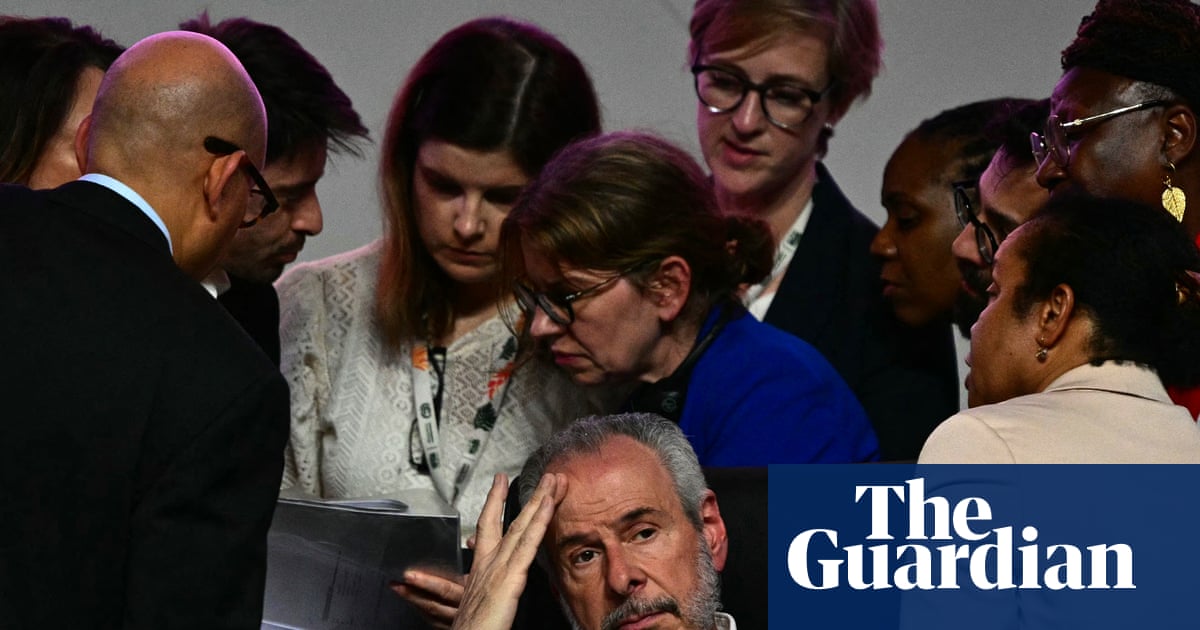
"Dawn was breaking over the Amazonian city of Belem on Saturday morning, but in the windowless conference room it could have been day or night. They had been stuck there for more than 12 hours, dozens of ministers representing 17 groups of countries, from the poorest on the planet to the richest, urged by the Brazilian hosts to accept a settlement cooked up the day before. Tempers were short, the air thick as the sweaty and exhausted delegates faced up to reality: there would not be a deal here in Brazil. The 30th UN climate conference would end in abject failure."
"As science has told us for well over a century, the carbon dioxide that burning them produces is heating up the planet, now to dangerous levels. But in more than 30 years of annual climate meetings, the need for that to halt has been mentioned only once in a resolution made two years ago, at Cop28 in Dubai, to transition away from fossil fuels. Delegates from the Arab Group of 22 nations, from Russia, and from a sprinkling of others, were determined it would not happen again."
"A growing number of countries, however, were equally determined that progress on this was urgently necessary. They had come up with a plan, which was gathering more and more support, and they made it clear they were prepared to dig in. Meanwhile, developing countries desperately wanted to move forward on securing the money that would help them cope with the already disastrous impacts of extreme weather. By the early hours of Saturday, some delegates were ready to walk out and force a collapse. It was on the edge for us, said Ed Miliband, the UK energy minister. I was prepared to walk away."
Delegates spent more than 12 hours confined in a Belem conference room as ministers from 17 country groups failed to agree a settlement. The talks risked abject failure because fossil fuels remained the key sticking point, despite long-standing scientific evidence that burning them raises carbon dioxide to dangerous levels. The call to halt fossil fuel use has featured only once in decades of meetings, at Cop28, and some nations opposed renewing such language. Other countries pushed a plan and dug in, while developing states demanded finance to cope with worsening extreme-weather impacts.
Read at www.theguardian.com
Unable to calculate read time
Collection
[
|
...
]